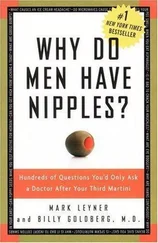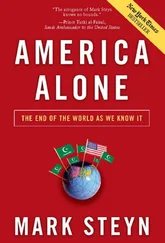So, from the individual homeowner with no one to sell his home to, and the business that’s run out of domestic market, and the bank frantically loaning to jurisdictions it barely comprehends, nudge it up one last stage—to the state. In recessions, government is enjoined to spend—to go into deficit, ramp up the national debt in order to “stimulate” the economy.
Adding to the national debt presupposes that there’ll be someone to pay it off. But what if there isn’t? And do the Chinese and the Saudis already know the answer to that question? The failures of British and German Treasury auctions (not to mention near misses in the U.S. prevented only by the Fed buying up Treasury securities) prefigure a world with too much debt and too few sugar daddies willing to cover it.
In 2003, the IMF conducted a study of Eurosclerosis and examined the impact on chronic unemployment and other woes if the Eurozone labor market were to be Americanized—increasing participation in the work force, reducing taxes, rolling back job-for-life security, and generally liberalizing the economy. 38They concluded that the changes would be tough, but over the long-term beneficial.
It’s interesting that it never occurred to the IMF that anyone would be loopy enough to try their study the other way around—to examine the impact on America of Europeanization. For that, we had to wait for the election of Barack Obama. You’ve probably heard liberal academics on NPR and the like drooling about “the European model,” and carelessly assumed they were referring to Carla Bruni. If only. Under the European model, state spending accounts for roughly 50 percent of GDP. 39Under the Swedish model, which isn’t half as much fun as it sounds, state spending accounts for 54 percent of GDP. In the United States, it’s already over 40 percent. Ten years ago, it was 34 percent. So we’re trending very Swede-like. And why stop there? In Wales, government spending accounts for just under 72 percent of the economy. 40Fortunately for what’s left of America’s private sector, “the Welsh model” doesn’t have quite the same beguiling ring as “the Swedish model.” But, even so, if Scandinavia really is the natural condition of an advanced democracy, then we’re all doomed.
That was the general thesis of America Alone —that the jig is up for much if not most of the western world. “Alarmist,” pronounced The Economist , 41reflecting the general consensus of polite society in both Europe and North America. Polite society has spent the years since playing catch-up.
So if you don’t want your fin de civilisation analysis from a frothing right-wing loon you can now get it from the house-trained chaps at the New York Times : “Europeans have boasted about their social model, with its generous vacations and early retirements, its national health care systems and extensive welfare benefits, contrasting it with the comparative harshness of American capitalism… ‘The Europe that protects’ is a slogan of the European Union.” 42
Protects from what? Right now, Europe mostly needs protection from itself and its worst inclinations: “With low growth, low birth rates and longer life expectancies, Europe can no longer afford its comfortable lifestyle.”
Even in its heyday—the Sixties and Seventies—the good times in Europe were underwritten by the American security guarantee: the only reason why France could get away with being France, Belgium with being Belgium, Sweden with being Sweden is because America was America. For over sixty years America has paid for Europe’s defense. And because the United States Army lives in Germany, that frees up Germany to spend its defense budget on government health care and all the rest. In essence, American taxpayers pay for German entitlements.
And it still isn’t enough.
So the world has deemed Greece “too big to fail,” even though in (what’s the word?) reality it’s too big not to fail. And the rest of us are too big not to follow in its path: “Another reform high on the list is removing the state from the marketplace in crucial sectors like health care, transportation and energy and allowing private investment,” reported the New York Times . “Economists say that the liberalization of trucking routes—where a trucking license can cost up to $90,000—and the health care industry would help bring down prices in these areas, which are among the highest in Europe.” 43
Removing the state from health care brings down prices? Who knew?
This New York Times is presumably unrelated to the New York Times that spent the previous year arguing for the U.S. government’s annexation of health care as a means of controlling costs. And entirely unrelated to the New York Times whose Nobel Prize-winning economics guru, Paul Krugman, pronounced Europe “the Comeback Continent” in 2008. 44
About half the global economy is living beyond not only its means but its diminished number of children’s means. Instead of addressing that fact, countries with government debt of 125 percent of GDP are being “rescued” by countries with government debt of 80 percent of GDP. Good luck with that.

THE YANK BONE CONNECTED TO…?
The day after the 2010 election, I found myself sharing a stage with Howard Dean, former Governor of Vermont and head of the Democratic National Committee. 45Governor Dean mused that the European Union was one of the most interesting experiments in government ever attempted.
As “interesting” as the experiment is, most Greeks, Frenchmen, and Germans were not aware that they were signing on as guinea pigs. In the post-war ruins of la gloire de la république , the French created the embryo EU to be a kind of Greater France—as a way of avoiding the truth about their own diminished status. It worked too well, and, when the EU took on many of the calcified qualities of its dominant founder, the elite thought it was time to pass the buck up yet again. The Eurocrats are now in favor of the European Unionization of the world. As Herman van Rompuy put it: “2009 is the first year of global governance.” 46
Herman van Hoozee? Well, he’s this curious Belgian bloke who, shortly before uttering the above words, emerged as the first “President” of “Europe.”
Nobody elected him as President of Europe, whatever that means. One day he was an obscure Belgian. The next day he was an obscure Belgian with a business card saying “President of Europe.” Just one of those things, could happen to anyone. It’s not just that he’s hardly a household name in the average European household. It’s not clear he’s a household name even in the van Rompuy household. I don’t watch a lot of Belgian TV, so I’m not sure if they have a “Belgian Idol” or “Dancing with the Belgians” over there, but, if so, he’d be knocked out in round one. Like everything in a European Union all but entirely insulated from democratic accountability, the so-called “presidency” was a backroom stitch-up: neither the French nor the Germans wanted a charismatic glamorpuss in the gig stealing their respective thunders. An obscure Belgian was just the ticket. Being a low-grade nondescript was the minimum entry qualification.
And yet the fact remains that he is “President” of “Europe,” and in that capacity he announced that 2009 was the first year of global governance.
Incidentally, did you get that memo?
Me neither.
Still, I’m always appreciative when a fellow says what he really means.
The upgrading of the G20; the plans for planetary-wide financial regulation; the Copenhagen climate-change summit and its (thankfully thwarted) proposals for a transnational bureaucracy to facilitate the multitrillion-dollar shakedown of the advanced democracies: all these are pillars of “global governance,” of the European Unionization of the world—and Copenhagen alone would have been the biggest exercise in punitive liberalism the western democracies had ever been subjected to. Right now, if you don’t like the local grade school, you move to the next town. If you’re sick of Massachusetts taxes, you move to New Hampshire. Where do you move to if you don’t like “global governance”? To what polling station do you go to vote it out?
Читать дальше












